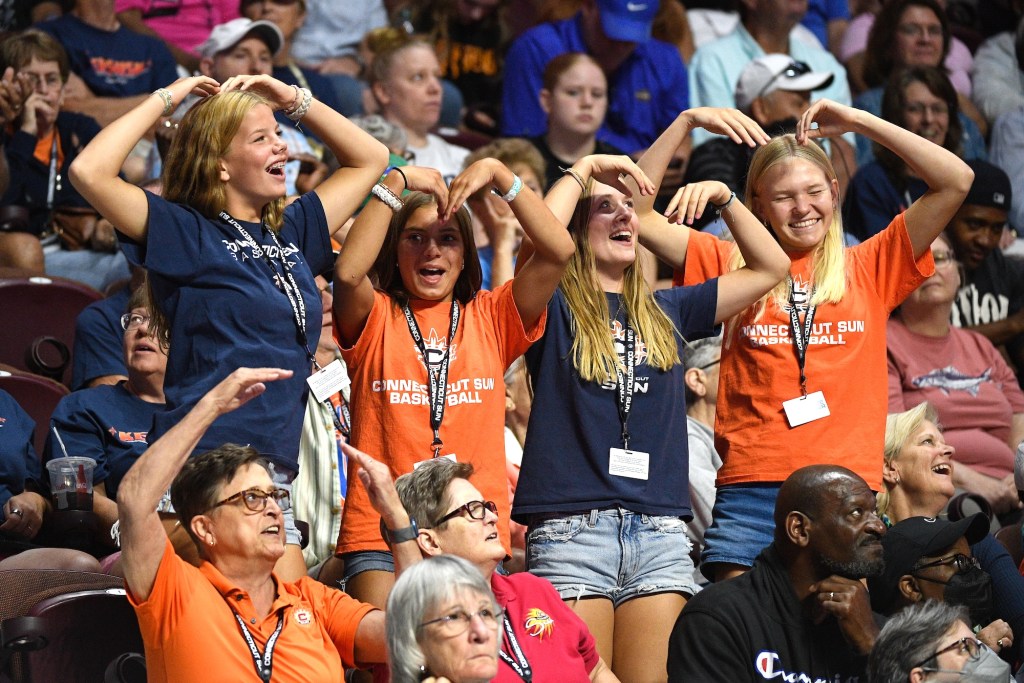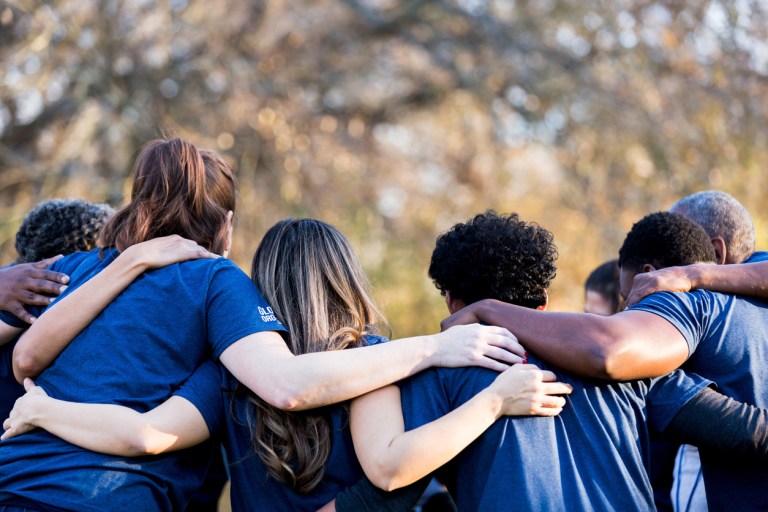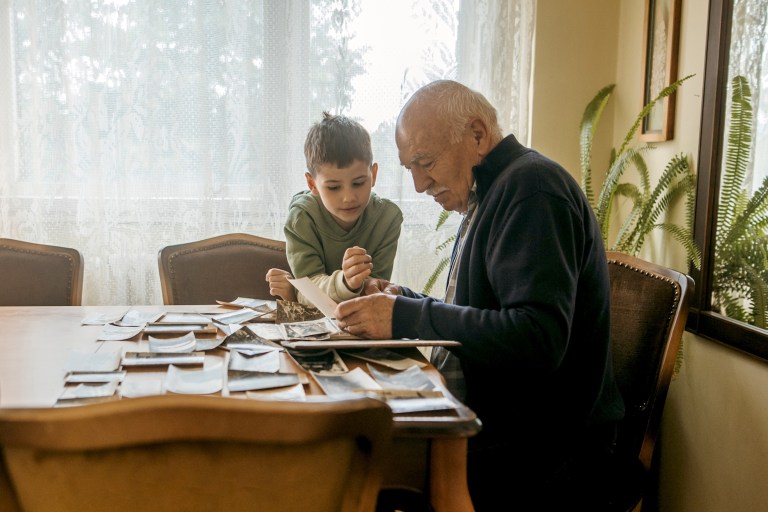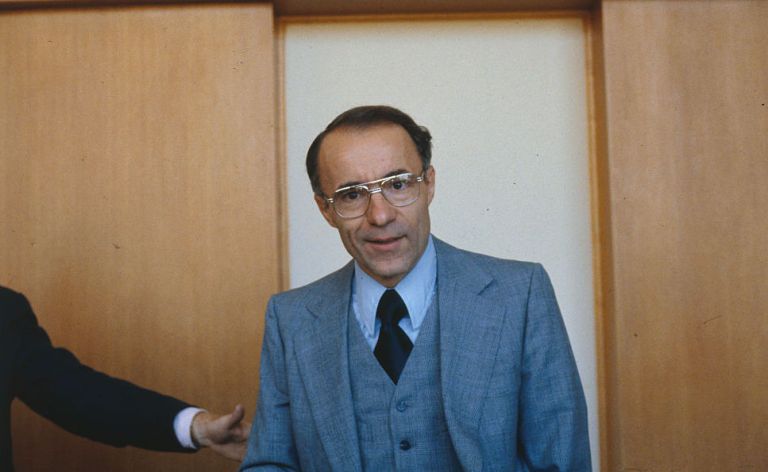The word “fan” is short for “fanatic,” and depending on the depth of your passion, being one can manifest in some pretty intense ways: Each of us knows (or perhaps even is) the football follower who blows their gasket at a foul call or the Taylor Swift stan who collapses in tears when she takes the stage.
But science suggests that becoming emotionally invested in a sports team, artist, or creative work actually isn’t half bad — in fact, being a fan can benefit not only the devotee themself, but everyone else as well. As David Sikorjak, co-author of Fans Have More Friends, told Healthline: “It is good for you, good for others, and good for society.”
If you’re an enthusiast yourself, be it of the Philadelphia Eagles or Star Wars, you might be nodding your head right now, having personally experienced many of the perks that come with championing something. Have you ever considered just how wide-ranging those positive effects can be, though? Read on for a roundup.
Being a Fan Can Boost Your Self-Esteem
According to Stephen Reysen, a professor of psychology at East Texas A&M University who studies identity and fandom, sports fans tend to identify so much with their teams that they feel the team is actually part of them. “So when the team is winning, you feel like you are winning even though you are not a player,” he explained to CNBC in a 2020 interview.
A 2019 study out of Ohio State University backs that up. Researchers found that sports fans enjoyed a surge in self-esteem that lasted at least two days after their team won — and remarkably, fans of the losing team didn’t feel a decrease in theirs.
“Just feeling connected to others while watching the game helped sustain self-esteem,” co-author Silvia Knobloch-Westerwick said in a news release at the time. “So for fans of the winning team, the social aspect of sharing the victory with each other led to a self-esteem boost. For fans of the losing team, sharing the pain may have protected them from losing self-esteem.”
It May Help Us Better Understand Others (and Ourselves)
Turning to the world of television fandom, the discourse and thought that certain shows provoke may go a long way in increasing our understanding of people and events beyond our lived experience. A 2015 study of Mad Men fans found that in online discussions, they’d evaluated social relationships on the show in the same way they would real-world relationships — and that’s a good thing.

“This leads to a deeper understanding of other people and situations outside of our own worlds,” the study authors wrote, noting also that “watching a television narrative can bring up a fan’s own experiences and afford the fan an opportunity to reconsider and evaluate those experiences.”
They added: “Our data demonstrate how psychologically healthy fans can be — that they intuitively understand that a story can help us develop and learn things that will help us in our everyday social interactions.”
RELATED: “Humans Are Wired for Connection”: Why We Feel Grief When Our Favorite TV Shows End
Fandoms Provide Community …
We all just want to belong, don’t we? As the authors of one 2022 review pointed out, “There is general agreement that belonging is a fundamental human need that all people seek to satisfy.” And as we drift farther away from each other physically in this era of remote work and device dependency, it’s arguably more important than ever to come back together in spirit.
Fandoms — the community of fans that form around a given subject — offer that sense of community. Notably, the digital world can facilitate fellowship in this arena, through online forums and fan groups that connect us to people we otherwise wouldn’t meet in our day-to-day lives.

“Being part of any group helps people feel connected, which is a major component of our mental health. When you’re not as lonely, you tend to have a higher positive mental health,” Paul Booth, a professor of media and pop culture at DePaul University, told Healthline. “Fandom is about being part of something larger than yourself. In some ways, it’s also about feeling like you matter.”
… And a Sense of Meaning
Craving purpose — or a raison d’etre, if you will — is another natural part of the human experience. And while we’re not suggesting that the Dallas Cowboys or the next season of The Bachelor should be the sole reason you get up in the morning (but if it is, that’s cool, too!), being part of either fandom could add meaning to your life.
A 2021 study seeking to determine if being a sports fan provided people with meaning concluded that the answer is “yes” — if you’re bonding with others in the process. Researchers interviewed fans of a professional women’s basketball team and had them write about their experiences, and found “that connecting with family and friends, supporting women’s sport, and enhancing mental health via support of the team were sources of significance in participants’ lives.”
Fan Activism Can Lead to Social Change
Because fandoms are essentially their own communities, members can band together to discuss issues they collectively value and then take action to address them.
“Fans want to make the things they love that much better, so they find something that they don’t agree with — a problematic representation or a social issue that could be highlighted — they talk about it, work with it, try to explain or understand,” Booth told Inverse, noting that doing so “is how significant social change happens.”
Activism may also be directly inspired by the artist or subject of a fandom, and then facilitated by the connection fans have with each other. For example: Time reported that in 2020, fans of the K-pop group BTS — a global fandom known as BTS ARMY — raised $1 million in donations for the Black Lives Matter movement after the band and its record label donated the same amount.

And in a 2011 study analyzing fan activism, researchers detailed the 2005 creation of the Harry Potter Alliance, or HPA, by activist Andrew Slack, who was inspired by Dumbledore’s Army, the student activist organization in the original book series. The study authors noted that the group “uses parallels between the fictional content world and the real one as an impetus for civic action,” adding that at the time of the study, “it claims to mobilize over 100,000 young people across the United States — mostly, but not exclusively, Harry Potter fans — to work for diverse causes including literacy, equality, and human rights.”
Plus, It Gives Us Something to Look Forward to
Giving ourselves something to look forward to in life is good advice from scientists and everyday sages alike. And being a fan offers plenty of opportunity to get positively giddy with anticipation, whether it’s over a huge event like Comic Con or something as small as a celeb sharing a weekly update on social media.

“When an individual anticipates something good happening, the neurotransmitter dopamine is released, resulting in positive feelings and decreased painful ones, along with increased arousal and excitement that can also feel good,” psychologist and self-proclaimed “passionate fangirl” Lynn Zubernis wrote in a piece for Psychology Today.
“Counting the days until the next live concert can produce months of anticipation, with every day crossed off on the calendar bringing another burst of dopamine. Waiting for a new episode of a favorite television show or anticipating a new album release brings a similarly pleasurable experience.”
To sum it all up, being a fan can be a positive whether you’re in your own little silo of support or belong to a big group of enthusiasts, but the latter may offer even more perks for your well-being — and definitely a wider variety of game-day snacks.
RELATED: Like “Braille for Sports,” This Handheld Tool Lets Blind Fans Watch a Game Through Their Fingers
When you buy books through our links, Nice News may earn a commission, which helps keep our content free.











